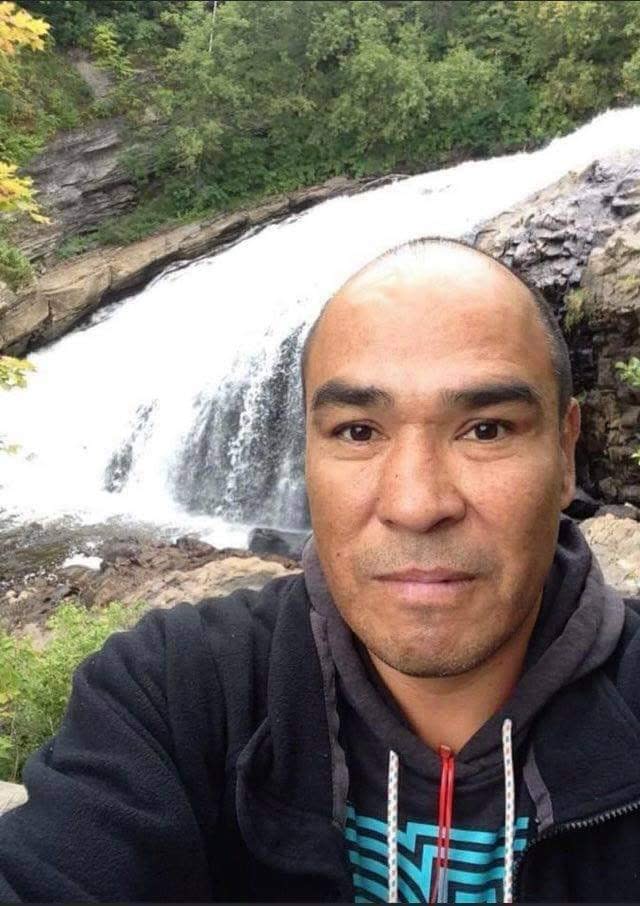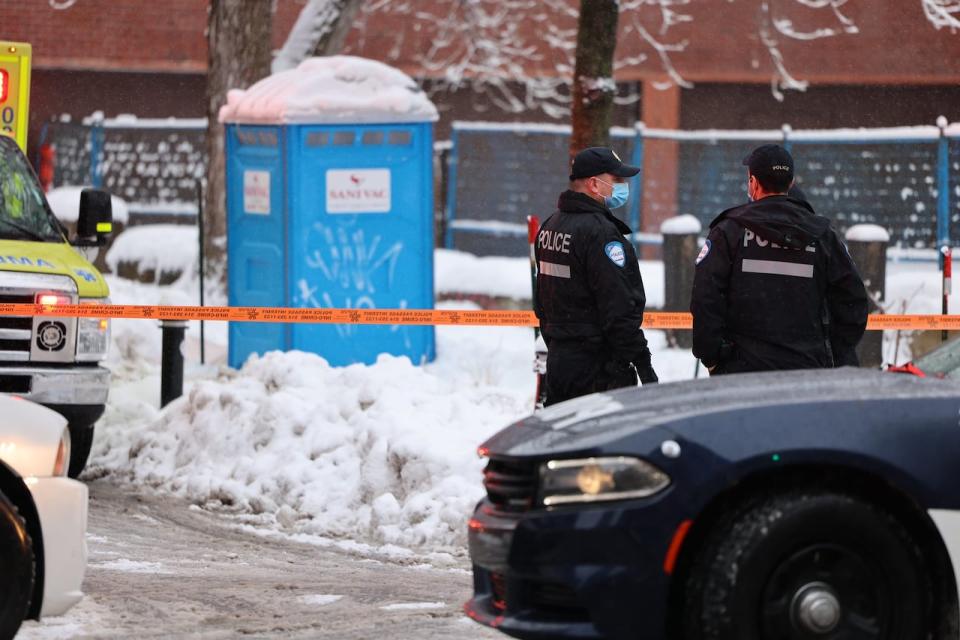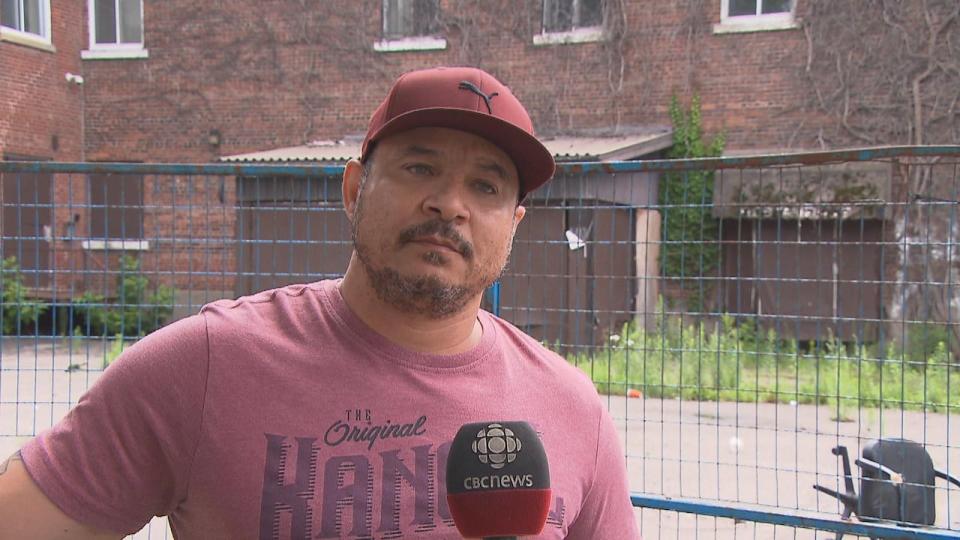Coroner's inquiry hears Raphaël André was asked to leave 2 shelters the night he died

A coroner's inquiry has heard that Raphaël André was asked to leave two different homeless shelters the night he died in January 2021, in part due to COVID-19 restrictions in place at the time.
André, an Innu man originally from Matimekush-Lac John in northern Quebec, had been living on the streets in Montreal in the years before his death.
Jonathan Lebire, who at the time was a co-ordinator at a shelter run by the group Projets Autochtones du Québec, testified Tuesday that in the months leading up to his death, André was a regular at the shelter, known as PAQ 2.
"He was not someone who caused problems. He was part of the family, part of the gang," Lebire said.

André's body was found in a public toilet near one of the shelters. (Mathieu Wagner/Radio-Canada)
Lebire testified that in January 2021, public health restrictions required anyone visiting PAQ 2 to have a COVID test.
He said some Indigenous clients, including André, didn't like the idea of getting tested.
Lebire said the night André died, he visited the shelter to see if he could spend the night. But Lebire said André refused to take a COVID test, and so he had to ask him to leave.
Forced to leave a second shelter
Later that night, André visited the Open Door shelter and drop-in centre, where he was also a regular. Normally it was open 24 hours a day, but at the time it was closed overnight because of a recent COVID outbreak.
John Tessier, a co-ordinator at the Open Door at the time, testified that after leaving PAQ 2, André came to the Open Door to sleep.
Tessier said because of the requirement to close at 9 p.m., staff at the shelter would wake clients who were napping starting at around 7:30 p.m. so they could prepare to leave.
Tessier said they tried to find places at other shelters for clients who had nowhere to go.
He said that night, André didn't want to leave.
"He didn't understand why he had to leave, because previously he was able to stay all night," Tessier said.
Tessier said staff at the centre called a taxi for André to take him to another shelter, but André refused.
André was found dead inside a portable chemical toilet located steps away from the Open Door the next morning.
A pathologist testified Tuesday that André died of hypothermia, and that he was extremely intoxicated when died, with a blood-alcohol level suggesting he'd consumed the equivalent of 14 servings of beer.
Frustration with COVID restrictions
Both Lebire and Tessier expressed frustration with how some of the COVID restrictions affected people living on the streets.
Tessier said he was puzzled when public health officials ordered the Open Door to close at 9 p.m.

John Tessier, a former co-ordinator for the Open Door shelter seen here in 2021, testified Tuesday he was frustrated that public health officials had ordered the shelter closed overnight due to a recent COVID outbreak. (CBC)
"I knew this would have bad consequences. I tried to tell anyone who would listen," He testified.
"What's the reason it's safe at 8:59, but it's not at 9:01?" Tessier said.
"Miraculously, after Raphaël died, we were allowed to be open all night again," Tessier added sarcastically.
"It was frustrating for me, as the person who had to ask him to leave that night," Tessier said.
Lebire said when dépanneurs and other stores were closing early because of the curfew, he noticed more of the shelter's clientele turning to street drugs.
"COVID changed everything for people who were already fragile," Lebire said.
And he said since fewer people were circulating because of public health restrictions, people with addictions were less discreet — openly consuming drugs or alcohol in the Metro, in parks or on the street.
Lebire said he was surprised when he learned André had died.
"He had lots of life — he would smile. He wasn't depressed, he was resilient," Lebire said.
On Wednesday, officials from Quebec's Ministry of Health and Ministry of Relations with First Nations are expected to testify, as well as Mylène Drouin, Montreal's director of public health.
Coroner Stéphanie Gamache is presiding over the inquiry, which is expected to last a month.

